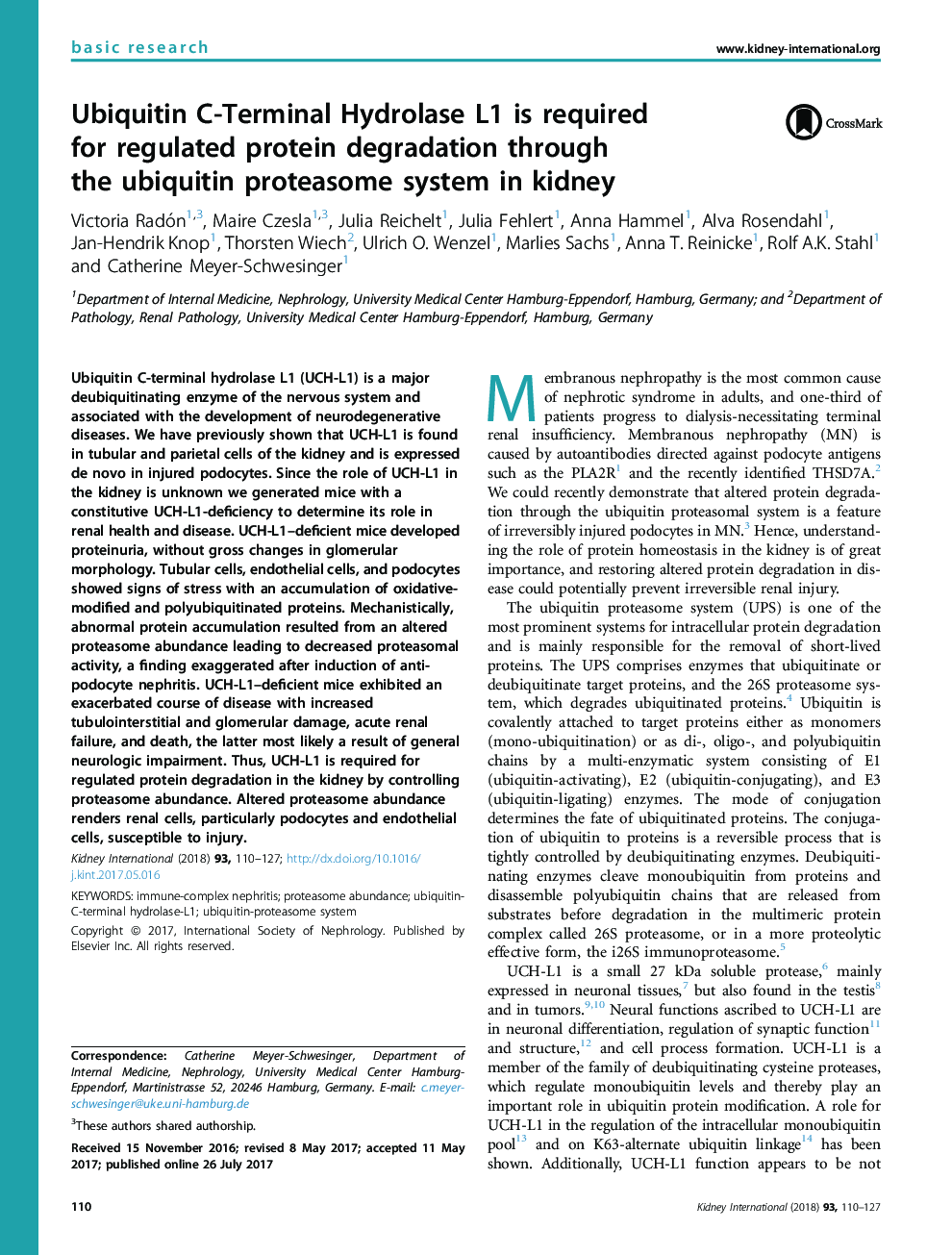| Article ID | Journal | Published Year | Pages | File Type |
|---|---|---|---|---|
| 8773029 | Kidney International | 2018 | 18 Pages |
Abstract
Ubiquitin C-terminal hydrolase L1 (UCH-L1) is a major deubiquitinating enzyme of the nervous system and associated with the development of neurodegenerative diseases. We have previously shown that UCH-L1 is found in tubular and parietal cells of the kidney and is expressed de novo in injured podocytes. Since the role of UCH-L1 in the kidney is unknown we generated mice with a constitutive UCH-L1-deficiency to determine its role in renal health and disease. UCH-L1-deficient mice developed proteinuria, without gross changes in glomerular morphology. Tubular cells, endothelial cells, and podocytes showed signs of stress with an accumulation of oxidative-modified and polyubiquitinated proteins. Mechanistically, abnormal protein accumulation resulted from an altered proteasome abundance leading to decreased proteasomal activity, a finding exaggerated after induction of anti-podocyte nephritis. UCH-L1-deficient mice exhibited an exacerbated course of disease with increased tubulointerstitial and glomerular damage, acute renal failure, and death, the latter most likely a result of general neurologic impairment. Thus, UCH-L1 is required for regulated protein degradation in the kidney by controlling proteasome abundance. Altered proteasome abundance renders renal cells, particularly podocytes and endothelial cells, susceptible to injury.
Keywords
Related Topics
Health Sciences
Medicine and Dentistry
Nephrology
Authors
Victoria Radón, Maire Czesla, Julia Reichelt, Julia Fehlert, Anna Hammel, Alva Rosendahl, Jan-Hendrik Knop, Thorsten Wiech, Ulrich O. Wenzel, Marlies Sachs, Anna T. Reinicke, Rolf A.K. Stahl, Catherine Meyer-Schwesinger,
